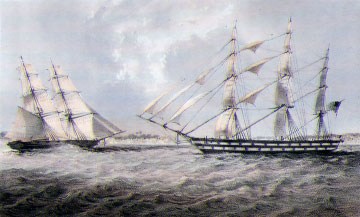Abolition of Slave Trade

In the late eighteenth and early nineteenth centuries, a coalition of activists helped to bring about the first actions toward the abolition of the transatlantic slave trade. Political battles that started in the 1780s would achieve results in the early 1800s. Denmark ended its trade in 1802. British anti-slave trade leaders like Thomas Clarkson, Granville Sharp, and William Wilberforce mobilized both grassroots and elite campaigns that succeeded in Parliament’s ban of the trade in 1807. Similar networks in the United States brought about a ban there in 1808. Putting a stop to human trafficking, however, required more than just legislation, it needed enforcement and international cooperation.
Abolitionist attacks on the slave trade were based in both moral and practical concerns. The slave trade was much easier to challenge than was the entire system of slavery. Few people could argue that the middle passage was positive or that it benefited the nation. Dissenting religious groups, like Quakers, and their allies described the slave trade to the British people in stark moral terms. They argued that the trade was offensive to God and country; that it undermined the very fabric of society. Religious groups could easily mobilize their members and congregations, who helped to spread their message. When they attacked colonial slavery, however, they threatened a major source of imperial income and domestic employment. Thus, many early campaigners had to make the political decision to attack the slave trade and press for moderate colonial reforms rather than full emancipation.
After 1808, Great Britain established its Africa Squadron to enforce its ban on the trade. These ships patrolled African waters and intercepted illegal cargoes of enslaved Africans. Britain delivered many of these “recaptives” to Sierra Leone, which was established for that purpose. In the decades that followed, several other European nations ended their trades in slaves due to diplomatic pressure or changes in political philosophy. Even so, enforcement remained a constant challenge. In many places, an illegal slave trade continued to deliver African captives for years or even decades.






